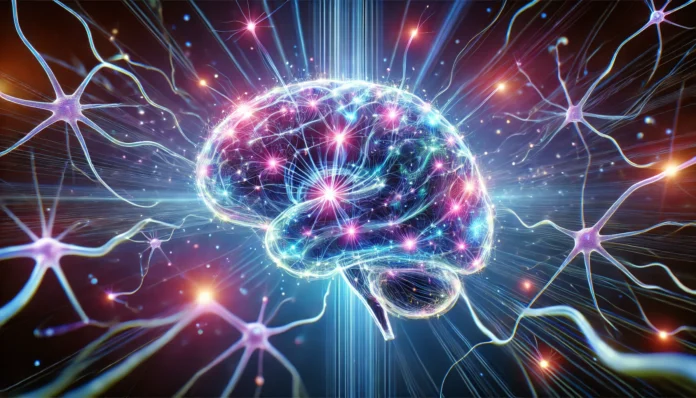Introduction
The human brain is an intricate organ responsible for storing, processing, and recalling vast amounts of information. Memory is an essential cognitive function that enables individuals to retain knowledge, learn new skills, and navigate daily life. However, short-term memory can be fragile and easily influenced by factors such as stress, aging, and lifestyle choices. Understanding how to increase short-term memory and how to improve recall is crucial for enhancing cognitive function and maintaining mental sharpness. This article delves into the science of memory, exploring techniques, lifestyle changes, and dietary recommendations that can help strengthen short-term memory and optimize overall cognitive performance.
You may also like: Stay Mentally Sharp in Your 70s: How to Turn Your Aging Brain Around with Science-Backed Strategies
Understanding Short-Term Memory
Short-term memory, often referred to as working memory, is the system responsible for temporarily holding and processing information. Unlike long-term memory, which stores information indefinitely, short-term memory has limited capacity and duration. Research suggests that the average person can hold approximately seven items in their short-term memory for about 20-30 seconds. This capacity can vary based on individual cognitive abilities and external influences. Improving short-term memory requires engaging in practices that reinforce neural connections and enhance brain function.
The prefrontal cortex plays a significant role in short-term memory by managing attention and information processing. Disruptions in this area due to stress, lack of sleep, or neurological conditions can impair memory retention and recall. Scientists have identified various methods to enhance short-term memory by stimulating neuroplasticity, the brain’s ability to reorganize and form new neural pathways in response to learning and experience.
Techniques to Enhance Short-Term Memory
Engaging in mental exercises is one of the most effective ways to increase short-term memory. Brain training activities such as puzzles, memory games, and problem-solving tasks encourage cognitive flexibility and strengthen memory retention. Regularly challenging the brain with new information helps reinforce neural pathways, making recall more efficient.
Repetition and chunking are two well-established techniques for improving short-term memory. Repetition involves reviewing information multiple times to reinforce memory retention. For example, repeating a phone number several times can enhance recall. Chunking involves breaking down complex information into smaller, manageable segments. A common example of chunking is grouping long strings of numbers into sets, making them easier to remember.
Another powerful memory-enhancing technique is visualization. Associating information with vivid mental images or creating mind maps can significantly boost recall. Visualization taps into the brain’s ability to process and store visual information more effectively than abstract data.

The Role of Sleep in Memory Consolidation
Quality sleep is essential for cognitive function and memory retention. During sleep, the brain consolidates memories by transferring information from short-term to long-term storage. The hippocampus, a critical brain region for memory formation, actively processes and organizes information while we sleep.
Research indicates that sleep deprivation can significantly impair short-term memory and reduce cognitive performance. Individuals who experience consistent sleep disruptions often struggle with concentration, learning, and recall. Establishing a regular sleep schedule, creating a restful sleep environment, and practicing relaxation techniques before bedtime can enhance memory retention and cognitive function.
Nutrition and Brain Health
Diet plays a fundamental role in cognitive function and memory enhancement. Consuming nutrient-rich foods that support brain health can significantly improve short-term memory and recall. Omega-3 fatty acids, found in fatty fish, flaxseeds, and walnuts, are essential for brain function and neuronal communication.
Antioxidant-rich foods such as berries, dark chocolate, and leafy greens protect the brain from oxidative stress and inflammation, which can impair cognitive function. Additionally, consuming foods high in choline, such as eggs and lean meats, supports neurotransmitter production, aiding memory and learning.
Hydration also plays a vital role in maintaining cognitive performance. Dehydration can lead to brain fog, reduced concentration, and impaired memory function. Ensuring adequate water intake throughout the day can support optimal cognitive function and prevent memory lapses.
Exercise and Cognitive Function
Physical activity is not only beneficial for overall health but also plays a crucial role in memory enhancement. Exercise increases blood flow to the brain, promoting the delivery of oxygen and nutrients essential for cognitive function. Regular aerobic exercise, such as walking, jogging, or cycling, has been shown to stimulate the release of brain-derived neurotrophic factor (BDNF), a protein that supports neuroplasticity and memory formation.
Strength training and resistance workouts also contribute to cognitive health by reducing stress hormones and promoting mental resilience. Incorporating a well-rounded exercise routine that includes both cardiovascular and strength-training exercises can optimize memory and cognitive function.
Stress Management and Memory Retention
Chronic stress is a major contributor to memory impairment. Elevated levels of cortisol, the body’s primary stress hormone, can interfere with memory formation and retrieval. Implementing stress management techniques such as meditation, deep breathing exercises, and mindfulness practices can help mitigate the negative effects of stress on memory.
Engaging in hobbies, spending time in nature, and practicing gratitude are additional methods to reduce stress and improve cognitive performance. Prioritizing relaxation and mental well-being can enhance short-term memory and support overall brain health.
The Impact of Social Interaction on Memory
Social engagement is a powerful tool for maintaining cognitive function and memory retention. Interacting with others stimulates brain activity, encourages learning, and enhances recall. Studies have shown that individuals who maintain strong social connections exhibit better cognitive function and a lower risk of memory decline.
Participating in group activities, engaging in meaningful conversations, and joining social clubs or community groups can provide mental stimulation and improve memory retention. Social interactions challenge the brain to process information, recall past experiences, and engage in critical thinking, all of which contribute to enhanced cognitive function.

Frequently Asked Questions (FAQ)
1. How can I improve my short-term memory on a daily basis?
Improving short-term memory requires consistent effort and the adoption of cognitive-friendly habits. One of the most effective ways to increase short-term memory is through mnemonic devices, which help associate new information with familiar concepts. Regular mental exercises, such as puzzles or memory challenges, can significantly improve recall ability over time. Sleep is another crucial factor, as proper rest strengthens neural connections necessary for better memory retention. Additionally, engaging in meditation or mindfulness exercises can reduce stress, a known factor in memory decline, thereby helping to increase short-term memory naturally.
2. What lifestyle changes can help with memory recall?
Adopting a brain-healthy lifestyle plays a crucial role in how to improve recall. Exercise, particularly aerobic activities like walking or swimming, increases blood flow to the brain, enhancing cognitive functions. A diet rich in omega-3 fatty acids, antioxidants, and whole foods supports neural health and memory retention. Staying socially active and engaging in stimulating conversations also helps strengthen mental connections, improving recall efficiency. Limiting distractions and practicing deep focus when learning new information are additional habits that contribute to how to improve recall.
3. How does diet affect short-term memory?
Nutrition plays a fundamental role in how to increase short-term memory, as the brain requires specific nutrients to function efficiently. Foods rich in omega-3 fatty acids, such as salmon and walnuts, support neuronal connections vital for memory. Antioxidants found in berries and leafy greens help combat oxidative stress, which can contribute to cognitive decline. Hydration is equally important since even mild dehydration can impair cognitive performance and reduce short-term memory efficiency. Regularly consuming a balanced diet that includes whole grains, lean proteins, and healthy fats can significantly increase short-term memory over time.
4. Can stress affect memory recall?
Yes, chronic stress has a detrimental impact on how to improve recall, as it increases cortisol levels, which negatively affects the brain’s ability to store and retrieve information. Stress-reducing techniques such as deep breathing, yoga, and mindfulness meditation can help mitigate its effects on memory. Engaging in regular physical activity can also counteract stress-related cognitive decline. Allocating time for relaxation and engaging in hobbies can help maintain an optimal mental state, ensuring better recall efficiency. By managing stress levels effectively, one can substantially enhance how to improve recall in daily life.
5. What role does sleep play in improving short-term memory?
Adequate sleep is essential for how to increase short-term memory, as it consolidates newly acquired information. During deep sleep, the brain strengthens connections between neurons, enhancing the ability to retain and recall details. Lack of sleep disrupts memory consolidation, leading to forgetfulness and difficulty retaining new information. Creating a sleep-friendly environment, such as maintaining a consistent bedtime, reducing screen exposure before bed, and avoiding caffeine late in the day, can enhance sleep quality. Prioritizing rest significantly boosts cognitive performance and overall brain health.
6. Are there any specific exercises to improve memory recall?
Yes, cognitive exercises play a vital role in how to improve recall. Techniques such as chunking, where information is broken down into smaller sections, make data retention easier. Regularly practicing memory games like Sudoku, crossword puzzles, or memory-matching games can help keep the brain active. Repetition and retrieval exercises, such as recalling information after short intervals, reinforce neural connections for better memory recall. Engaging in activities that require learning new skills, such as playing a musical instrument or speaking a new language, also enhances cognitive flexibility and improves recall.
7. How can technology aid in boosting short-term memory?
Technology offers various tools to increase short-term memory, including brain-training apps that provide cognitive exercises designed to enhance recall. Apps like Lumosity, Elevate, and Peak offer personalized games that target memory improvement. Voice notes, reminder apps, and digital calendars help externalize memory, reducing cognitive load while reinforcing important information. Audiobooks and podcasts can also enhance learning retention when paired with active listening techniques. By leveraging technology effectively, individuals can optimize their memory skills and improve recall in daily tasks.
8. Does multitasking negatively impact memory recall?
Multitasking can be detrimental to how to improve recall, as it divides attention and prevents deep processing of information. Studies show that frequent task-switching reduces cognitive efficiency and hinders memory retention. Instead, focusing on one task at a time, known as monotasking, significantly improves information encoding and recall ability. Using time management techniques such as the Pomodoro Technique, which involves focused work sessions with breaks, enhances productivity while improving memory recall. Reducing digital distractions, such as turning off notifications, can further optimize focus and increase short-term memory.
9. How does physical activity contribute to better short-term memory?
Regular physical activity is a proven method to increase short-term memory, as it boosts blood circulation to the brain and promotes the growth of new neurons. Exercise releases endorphins, reducing stress and improving overall mental well-being, both of which enhance memory retention. Activities like dancing and tai chi, which require coordination and movement learning, can specifically benefit memory recall. Strength training and aerobic workouts have been shown to increase levels of brain-derived neurotrophic factor (BDNF), a protein essential for learning and memory. Incorporating movement into daily routines is an effective way to maintain cognitive sharpness.
10. Can certain supplements help with improving memory recall?
Certain supplements can support how to improve recall, but they should be used in conjunction with a healthy lifestyle. Omega-3 fatty acids, found in fish oil supplements, help maintain brain cell integrity and support cognitive functions. Ginkgo biloba is often cited for its potential benefits in enhancing blood circulation to the brain, potentially improving recall. B vitamins, particularly B6, B9, and B12, play a role in reducing homocysteine levels, which, when elevated, can impair memory. However, while supplements can be helpful, they should not replace a balanced diet, proper sleep, and mental exercises aimed at how to increase short-term memory.

Conclusion
Improving short-term memory and enhancing recall requires a multifaceted approach that incorporates cognitive exercises, healthy lifestyle choices, and stress management techniques. Understanding how to increase short-term memory and how to improve recall can significantly enhance cognitive function and overall mental performance. By engaging in memory-boosting activities, maintaining a nutritious diet, prioritizing quality sleep, and fostering social connections, individuals can optimize their memory and support long-term brain health. Investing in cognitive well-being today lays the foundation for a sharper, more resilient mind in the future.
memory enhancement techniques, cognitive function improvement, ways to boost short-term memory, brain health strategies, mental clarity tips, improving recall ability, effective memory exercises, brain-boosting foods, neuroplasticity and memory, focus and concentration tips, memory retention strategies, cognitive training methods, how to sharpen memory, best practices for brain health, lifestyle habits for better memory, mental agility exercises, natural ways to enhance memory, brain function optimization, memory strengthening activities, ways to support cognitive health
Further Reading:
Memory loss: 7 tips to improve your memory
14 Natural Ways to Improve Your Memory
22 brain exercises to improve memory, cognition, and creativity
Disclaimer
The information contained in this article is provided for general informational purposes only and is not intended to serve as medical, legal, or professional advice. While Health11News strives to present accurate, up-to-date, and reliable content, no warranty or guarantee, expressed or implied, is made regarding the completeness, accuracy, or adequacy of the information provided. Readers are strongly advised to seek the guidance of a qualified healthcare provider or other relevant professionals before acting on any information contained in this article. Health11News, its authors, editors, and contributors expressly disclaim any liability for any damages, losses, or consequences arising directly or indirectly from the use, interpretation, or reliance on any information presented herein. The views and opinions expressed in this article are those of the author(s) and do not necessarily reflect the official policies or positions of Health11News.


